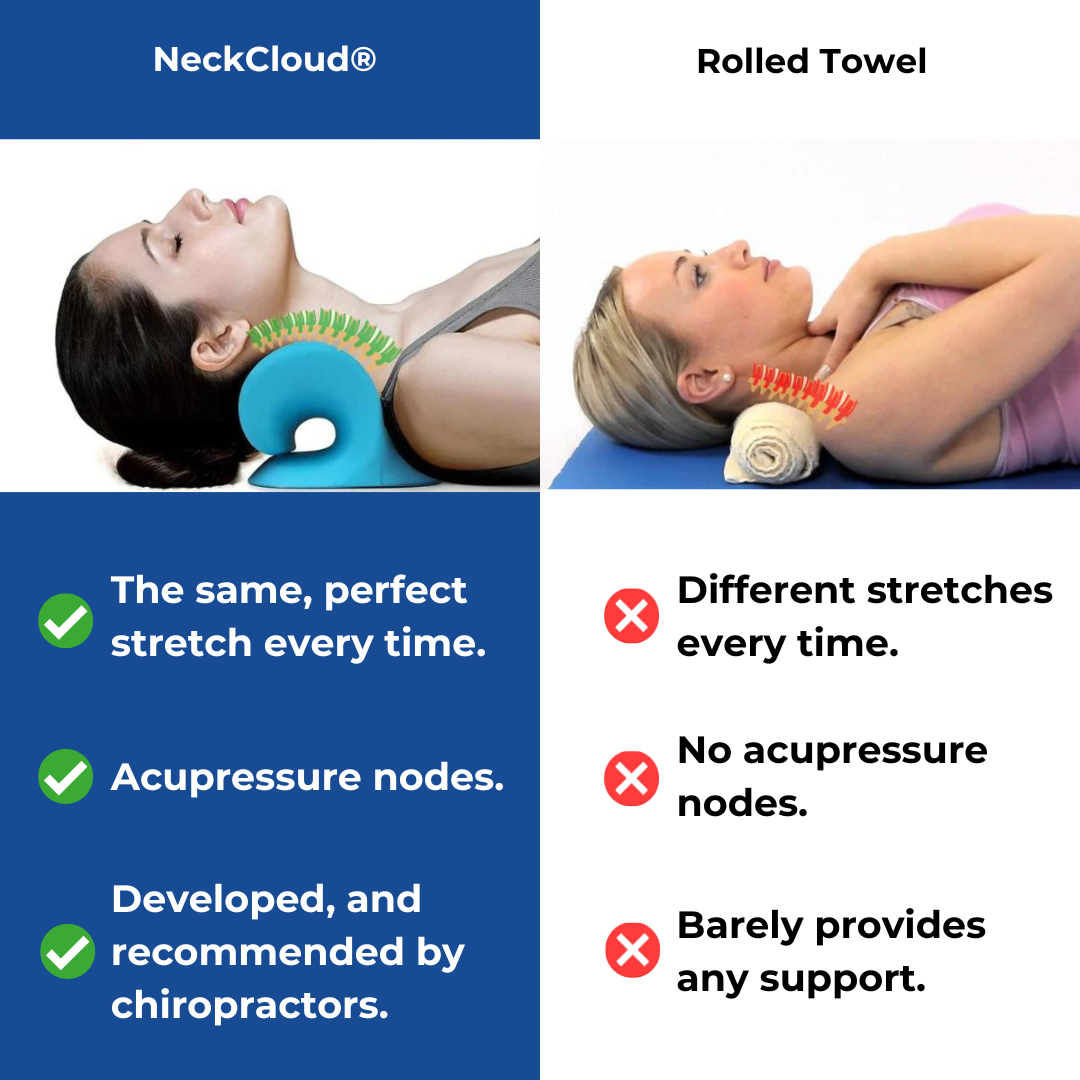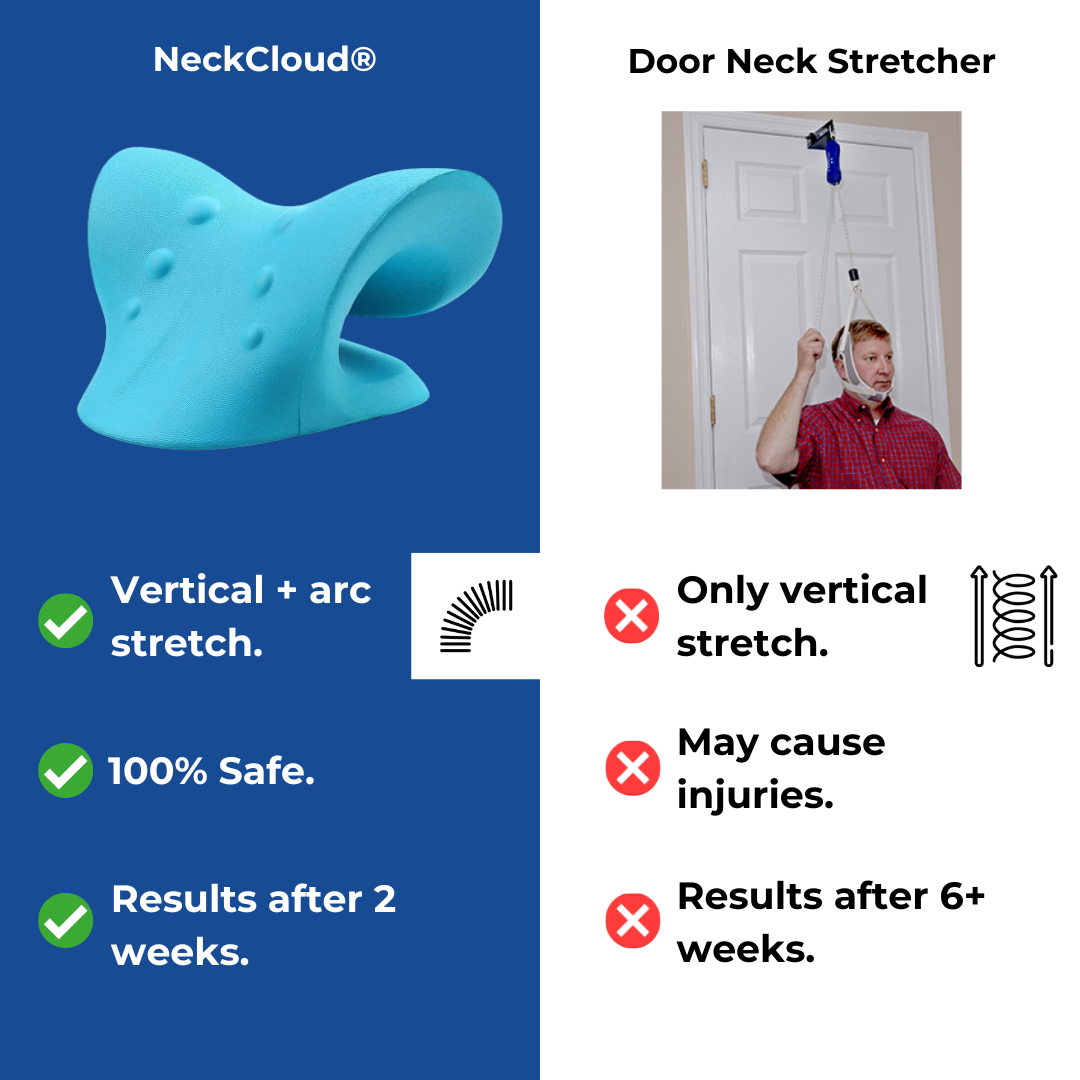How the Neck Cloud Can Aid With Chronic Neck Pain and Rigidity
How the Neck Cloud Can Aid With Chronic Neck Pain and Rigidity
Blog Article
The Influence of Tension on Neck Pain: Strategies for Decreasing Tension and Discomfort
In today's fast-paced globe, it's no secret that anxiety has actually ended up being a common consider the beginning and worsening of neck pain. The complex connection in between stress and muscular tissue stress often leaves individuals looking for alleviation from the pain that follows. By discovering targeted approaches focused on decreasing stress and promoting relaxation, one can begin to resolve the origin of neck discomfort and job towards a much more well balanced state of wellness. Join us on a trip to unwind the influence of tension on neck discomfort and uncover effective means to minimize discomfort and improve total lifestyle.
Understanding Stress-Related Neck Pain
Neck pain is a common issue that can often be credited to stress and anxiety. Stress-related neck pain can materialize as tension, tightness, or discomfort in the neck and shoulder location. The connection between tension and neck pain hinges on the body's physiological reaction to tension, which can cause muscle tension and tightness in the neck muscular tissues. Persistent tension can cause persistent neck discomfort and exacerbate current problems like cervical spondylosis or muscular tissue stress.

Identifying Common Tension Locations
One typical tension area is the neck, where tension commonly materializes literally. Stress migraines, stiff neck muscle mass, and restricted array of activity are usual signs of stress-related neck tension. Being aware of these usual stress areas can assist people acknowledge the physical indications of stress and take steps to resolve them prior to they rise right into chronic discomfort or discomfort.
Implementing Leisure Strategies
Leisure methods are beneficial devices for reducing neck pain triggered by stress. Furthermore, tasks like yoga and tai chi include both physical motion and relaxation, making them efficient practices for minimizing stress and anxiety and neck discomfort. By incorporating these relaxation methods into your everyday regimen, you can aid manage anxiety degrees, minimize tension in the neck, and alleviate pain connected with stress-induced neck discomfort.
Incorporating Self-Care Practices
Including self-care techniques is additional resources essential for maintaining general wellness and handling stress-related neck discomfort properly. Participating in routine exercise, such as mild stretching workouts or yoga exercise, can assist minimize tension in the neck and shoulders. Exercising good stance throughout the day and taking frequent breaks from long term resting or display time can additionally avoid strain on the neck muscular tissues.
Additionally, prioritizing sufficient sleep and establishing a regular rest regimen can add significantly to decreasing anxiety degrees and advertising relaxation. Producing a calming bedtime regimen, such as reviewing a book or taking a cozy bathroom, can help prepare the mind and body for peaceful sleep. Additionally, preserving a well balanced diet rich in nutrients and remaining moistened can support total health and lower swelling that might worsen neck discomfort.
Including mindfulness techniques, such as deep breathing exercises or meditation, can assist manage anxiety and promote relaxation. Taking time for oneself, taking part in hobbies, and establishing limits to secure individual time are also vital facets of self-care that can add to reducing stress and alleviating neck discomfort.
Seeking Professional Aid
Just how can people effectively attend to relentless neck pain that is affecting their every day life and health? Looking for specialist assistance can be a crucial action in managing and relieving neck pain. Consulting with healthcare professionals such as chiropractic specialists, physiotherapists, or orthopedic experts can supply valuable insights and customized therapy plans. These specialists can conduct thorough assessments to diagnose the underlying reasons for neck discomfort and recommend proper interventions.
Chiropractors focus on back adjustment techniques to boost placement and decrease stress in the neck location. Physiotherapists offer targeted stretches and workouts to strengthen muscles, enhance versatility, and boost total neck feature. check Orthopedic professionals can provide sophisticated clinical treatments such as shots or surgical options for extreme instances of neck discomfort.
Conclusion

Stress-related neck discomfort can show up as tension, rigidity, or discomfort in the neck and shoulder location. The connection between stress and anxiety and neck discomfort exists in the body's physical action to anxiety, which can result in muscle stress and tightness in the neck muscle mass. Tension headaches, rigid neck muscles, and restricted range of activity are usual signs of stress-related neck stress. By incorporating these relaxation methods right into your daily routine, you can aid take care of tension degrees, minimize tension in the neck, and alleviate pain connected with stress-induced neck pain.

Report this page